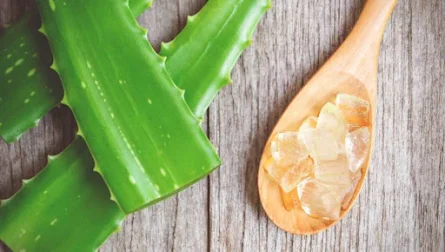How To Use Aloe Vera for Eczema: Aloe Vera Juice and Eczema
When applied on dry eczema skin, it is quickly absorbed, reduces itching and skin irritation, and keeps the skin supple. Aloe’s healing power comes from increasing the availability of oxygen to the skin, and by increasing the synthesis and strength of tissues.
What is Eczema? Eczema is an inflammatory condition that causes dry itchy skin. It often begins in the first couple of months of life with red; weeping lesions on the face, scalp nappy area, and extremities. In adults, it usually affects the neck, inside the elbows, and back of the knees. Eczema is often worse during infancy and greatly improves by early adulthood and many children improve by age two.
Eczema is common in people with asthma, hay fever, and other allergies. The rash may first develop as tiny blisters, which break and crush over. It is prone to infection especially if scratching is not controlled.
It is believed to be caused by an immune system weakness during infancy. This breach in the immune system takes place in the gut, which results in food allergens entering the blood thus resulting in eczema (and in some cases other allergic conditions such as asthma and hay fever).
SEE MORE: How To Use Aloe Vera For Frequent Urination
Tips on Managing Eczema
Diet is another factor. The most common dietary factors contributing to childhood eczema are food allergies (most often wheat, dairy, eggs, Soya, food colorings, and preservatives) combined with a lack of “good fats”, which have powerful anti-inflammatory effects. To see if your child’s eczema is triggered by any particular food or drink, keep a food diary for a couple of weeks because the reaction won’t be immediate.
Boosting your intake of Omega-3 fatty acids can have massive positive healing effects on eczema.
A daily Omega-3 supplement is recommended since in most cases we can’t get enough from our daily diet. When choosing any supplement for your child, make sure the label states that it is definitely suitable for their age group. Aloe Vera And Eczema relief can be boosted by using Natural Herbal products.
READ MORE: POTENT JUICE: Benefits of Aloe Vera + Pineapple + Mint + Lime Combination
Eczema Home Treatment
Other than using Aloe Vera, there are a number of eczema home treatments that can be applied to help relieve this condition.
1. Helping the skin retain moisture is important to successful treatment.
2. Take brief daily baths or showers with lukewarm (not hot) water. Use a gentle soap or non-soap cleanser. If possible, bath without soap.
3. After bathing, pat skin dry and apply a lubricating cream (Aloe Vera gel). The cream may help keep your skin from drying out. Reapply cream after.
4. An oatmeal bath may help relieve itching. Wrap one cup of Oatmeal in a cotton cloth and boil as you would to cook it. Use this as a sponge and bath in tepid water without soap.
5. Avoid antiseptic creams and sprays, as they irritate the skin.
7. Washcloths and beddings in mild detergents and rinse at least twice. Do not use fabric softener if it is irritating.
8. Avoid contact with any irritants or allergens that cause problems.
ALSO: Some Useful Plants And Their Uses
9. Wear cotton clothing. Avoid wool and acrylic fabric next to the skin.
10. Keep the itchy area cool and wet. Try a compress soaked in ice water.
11. Avoid over-exposure to the sun.
Aloe Vera And Eczema solutions are inexpensive. Whenever you have access to the Aloe Vera Plant, simply pick the leaf, slice it lengthwise and immediately apply the gel directly on the affected area of the skin. It has to be done immediately because Aloe Vera oxidizes quickly when exposed to air. Aloe Vera Juice has hydrating, antimicrobial, and anti-inflammatory properties and can be a better alternative to other chemically based skincare products that are found on the market.
RELATED: Health Benefits Of Aloe Vera












